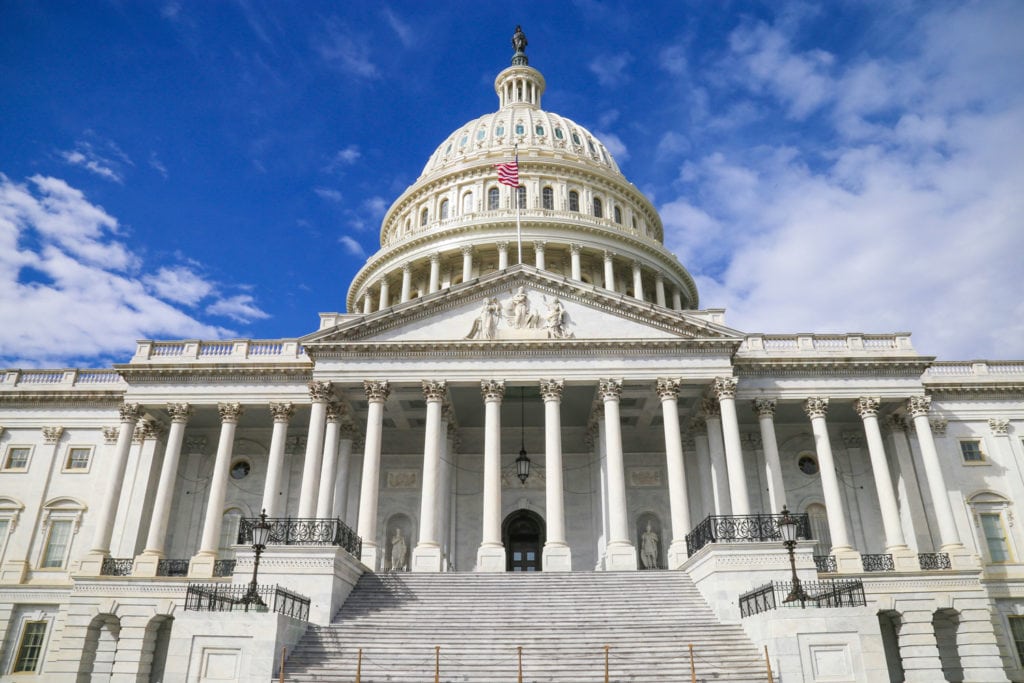
28 Jan State Update: National and State News That Will Impact the Cancer Community
Today we’re bringing you the latest news updates on topics that may have a significant impact on the cancer community. A lot has happened over the last few weeks at both the national and state levels, here are a few highlights:
National News:
- 7% of U.S. adults are now uninsured:According to the Gallup National Health and Well-Being Index, the rate of uninsured Americans has drastically increased since the since November 2016, rounding that out to seven million more Americans who are now uninsured. The administration’s ending of cost-sharing reduction payments to insurers and rising premiums are potential causes for this increase in uninsured Americans. The administration's decision to reduce the funding for outreach and enrollment assistance during the ACA open enrollment period substantially are also likely factors in the decline of insured Americans.
- Employer-sponsored health insurance premiums have increased 5% in 2018, to nearly $20,000 for a family plan, according to a poll of employments conducted by the Kaiser Family Foundation. Employers are passing those costs on to employees in the form of higher out-of-pocket costs, such as higher deductibles, co-pays, and out-of-pocket maximums.
- President Trump signs laws (S 2554 and S 2553) to end pharmacist “gag clauses.” These laws forbid insurance companies and Medicare Advantage companies from forbidding pharmacists to tell patients that they could save money by paying cash out-of-pocket rather than using their insurance.
- New Public Charge Rule Proposed:

The Trump Administration has proposed changing the definition of a “Public Charge” as any immigrant who receives one or more public benefits, which would include the Medicare Part D low-income subsidy to lower the cost of prescription drugs, SNAP (Supplemental Nutrition Assistance Program), Medicaid, housing assistance, SSI, and other cash benefits. If this new definition of a Public Charge is implemented, immigrants who are working towards citizenship who receive these benefits could be denied green cards or entry to the U.S. Currently, the “public charge” definition only applies to immigrants if they take cash assistance through TANF or SSI. And, they are only currently eligible for TANF or SSI after being in the US legally for 5 years. For more information, read Justice in Aging's statementand factsheets.
Florida & Georgia:
- In a previous Triage Cancer blog post, we detailed how individuals affected by a major disaster were deemed eligible for extended enrollment periods for health care coverage. Individuals living in counties in Florida and Georgia that were affected by Hurricane Michael were eligible to apply for “individual assistance” or “public assistance,” which means they also had access to an extended enrollment period to buy a Marketplace health insurance plan.
It’s been recently announced that these individuals now have an additional 60 days after the end of the first period. For additional details visit: https://www.cms.gov/CCIIO/Resources/Regulations-and-Guidance/Downloads/AdditionalSEPHurricaneMichael.pdf
Are you eligible?
- You resided in any of the counties that are eligible to apply for “individual assistance” or “public assistance” by FEMA either during the FEMA-designated incident period for the major disaster for Hurricane Michael, or at the time of application for enrollment; and
- You were personally affected by the disaster, and it prevented you from completing enrollment.
Florida:
Eligible consumers will have until February 16, 2019 to enroll in Exchange coverage. For a list of Florida counties that FEMA designated as eligible to apply for “individual assistance” or “public assistance” under a major disaster declaration due to Hurricane Michael, see: https://www.fema.gov/disaster/4399
Georgia:
In Georgia, qualifying consumers will have until February 20, 2019 to enroll. For a list of Georgia counties that FEMA designated as eligible to apply for “individual assistance” or “public assistance” under a major disaster declaration due to Hurricane Michael, see: https://www.fema.gov/disaster/4400
To enroll in coverage under this SEP, individuals must contact the Marketplace Call Center at 1-800-318-2596 or TTY at 1-855-889-4325.
California:
- Before leaving office, former California Governor Jerry Brown signed a handful of health care related bills into law, including:
- SB 910 and SB 1375, which ban short-term insurance plans beginning in 2020, and place limits on association health plans, to protect consumers. These are two types of coverage are exempt from Affordable Care Act requirements to accept patients with pre-existing conditions and cover ‘essential health benefits,’ including mental health and prescription drugs.
- AB 2472creates a new council to conduct a feasibility study of a “public option” for health care. A public option is defined as a publicly insured plan that directly competes with private plans in the California market to drive down premiums.
- SB 1108prohibits California from adding work requirements to its Medicaid program.
- AB 2499 requires health plans spend at least 80 percent of premium dollars on health care, rather than marketing, administrative overhead, and other costs
- SB 1021 (Wiener)extends prescription drug co-pay limits set in place in 2015, but which were set to expire in 2019. The law caps the co-payment for a 30-day supply at $250 for most plans.


